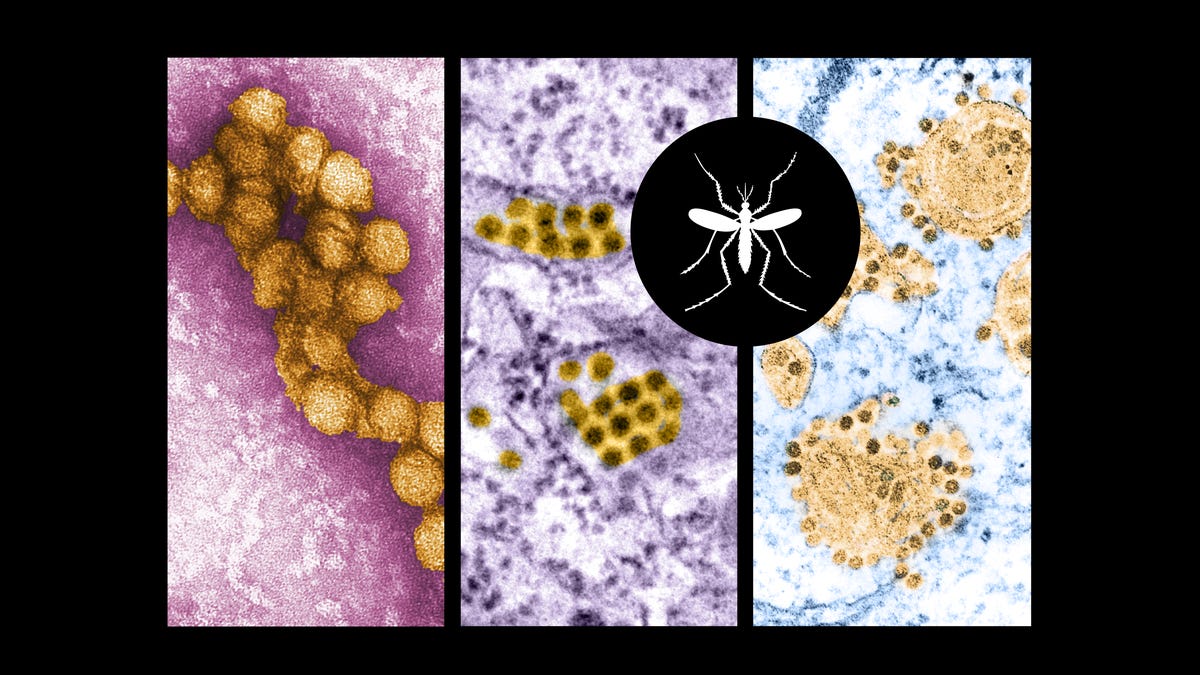Mosquito-borne diseases pose a rising threat: Recognize symptoms and safety measures
In recent years, the United States has experienced a spike in illnesses transmitted by mosquitoes, leading to severe health complications such as comas, seizures, and even fatalities.
Infections like West Nile virus, dengue fever, and eastern equine encephalitis (EEE) are examples of diseases carried by vectors, which include insects like mosquitoes, ticks, and fleas that transmit pathogens. If bitten by an infected insect and falling ill, the resulting condition may be classified as a vector-borne disease, as defined by the Centers for Disease Control and Prevention (CDC).
Following the first confirmed human case of EEE in July, which was the first since 2020, part of Massachusetts has been put on high alert. Additionally, this Tuesday marked the first death of a man in New Hampshire linked to this year’s outbreak. Cases of West Nile virus have risen as well; earlier this month, Dr. Anthony Fauci, previously the director of the National Institute of Allergy and Infectious Diseases, was hospitalized due to infection with this virus.
According to the CDC, mosquitoes rank as the deadliest animals on the planet. Here’s how these diseases spread.
How viruses infect humans
Not all mosquitoes are capable of carrying diseases. Those that are, referred to as vectors, are responsible for transmitting diseases like West Nile virus, EEE, dengue fever, malaria, and chikungunya in humans.
Since 2004, there has been a marked increase in reported cases of vector-borne diseases, with over 1 million cases logged in the U.S. between 2001 and 2023, according to the CDC’s National Notifiable Diseases Surveillance System.
Regions in the U.S. with mosquito-borne disease outbreaks
The West Nile virus has been documented across 33 states, with the CDC noting 289 cases reported in the U.S. this year; Texas has the highest count at 41 cases.
Dengue fever is less widespread in the U.S., primarily affecting travelers returning from overseas. This year, 2,646 cases were identified domestically: 16 cases in Florida, 2,551 in Puerto Rico, and 79 in the Virgin Islands.
EEE is a rare condition, with cases reported in five states, including the confirmed death of a resident in New Hampshire.
The likelihood of contracting a mosquito-borne illness increases in areas with standing water or during significant outbreaks.
Vaccinations for mosquito-related diseases
- Currently, there are no vaccines or medications available to prevent the West Nile virus.
- For dengue, two vaccines are offered: Dengvaxia® (CYD-TDV) by Sanofi Pasteur and Qdenga® (TAK-003) by Takeda.
- There are, however, no vaccines or treatments for eastern equine encephalitis.
Preventive measures against mosquito-borne diseases
To safeguard yourself and your family from mosquito-related illnesses, follow these simple safety tips.
The CDC advises employing “mosquito avoidance strategies” while outdoors, which include:
- Applying EPA-approved insect repellent on skin and clothing.
- Wearing long-sleeved clothing and pants, particularly at night.
- Staying in areas with proper screening.
- Using insecticide-treated bed nets when camping outdoors.
Additionally, if traveling abroad, especially to areas in Southeast Asia, the Indian subcontinent, or tropical regions of South and Central America, it’s essential to consult with your healthcare provider.
CONTRIBUTING: Eduardo Cuevas, Kinsey Crowley, Minnah Arshad, and Jim Sergent
SOURCE: Centers for Disease Control and Prevention, World Health Organization, National Institute of Health, and YSL News research

